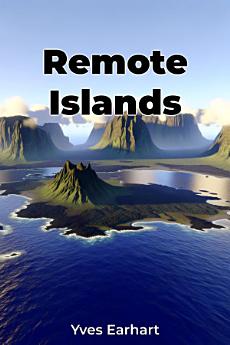Remote Islands
এই ইবুকখনৰ বিষয়ে
The book is structured in three parts, beginning with an introduction to the concept of remoteness and criteria for identifying the world's most isolated islands. It then delves into specific case studies, examining island formation, unique flora and fauna, and geological characteristics. The final section explores the challenges and opportunities these islands present for conservation, research, and sustainable human presence.
By combining scientific studies with firsthand accounts, the book provides a multi-faceted perspective on island life. What sets this book apart is its holistic approach, presenting remote islands as whole systems rather than focusing solely on biological or geological aspects. It balances scientific rigor with engaging narratives, making it accessible to a broad audience interested in environmental science, earth sciences, and extreme habitats.
Through its exploration of these isolated ecosystems, the book highlights the interconnectedness of global environments and the importance of preserving Earth's biodiversity.








